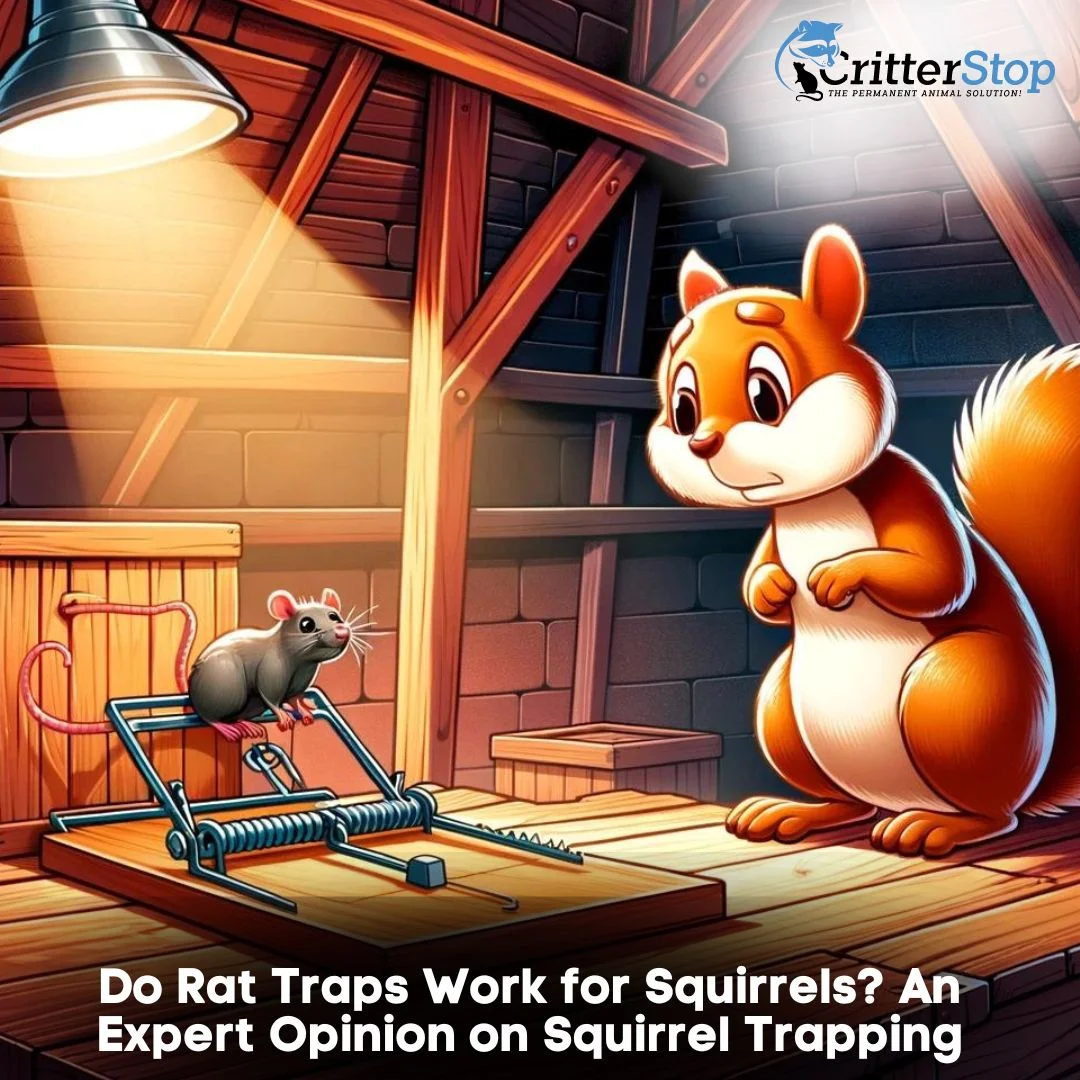
Squirrels are known to be one of the most common pests that invade homes and gardens. They are infamous for chewing on wires, insulation, and wood, often leading to substantial property damage. As a result, many homeowners seek effective ways to get rid of squirrels. One common question that arises is whether rat traps work for squirrels.
Rat traps are a popular method of pest control, and many people wonder if they can be used to catch squirrels. While rat traps are designed to capture rats, they can also be effective in catching squirrels. However, it is important to note that rat traps may not be the most humane method of squirrel removal, and there are other options available.
In this article, we will explore the effectiveness of rat traps for catching squirrels, as well as other methods of squirrel removal. We will also examine the advantages and disadvantages of employing rat traps, along with offering advice for their safe and efficient utilization.
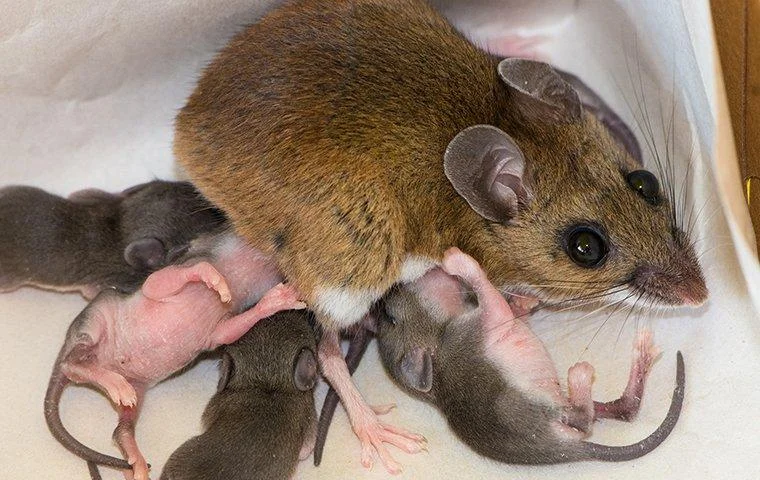
Rodent infestations in urban and suburban areas are a common problem that can cause significant damage to homes and buildings. Rats and squirrels rank among the most prevalent rodents that infiltrate homes and buildings. Renowned for their capacity to gnaw through wires, insulation, and various materials, they inflict damage to property and present a fire hazard.
Trapping is often the most effective way to deal with rodent infestations. However, it is crucial to employ the right type of trap for the specific type of rodent. For example, rat traps may not be effective for trapping squirrels, as they are larger and more agile than rats.
Trapping squirrels with rat traps can be effective, but only if the traps are set up correctly. It is important to use a trap that is large enough to capture the squirrel and to place the trap in an area where the squirrel is likely to travel. Baiting the trap with peanut butter or sunflower seeds can also increase the chances of trapping the squirrel.
In addition to trapping, taking proactive measures to prevent rodent infestations from transpiring in the first place is crucial. This can entail sealing any cracks or gaps in the walls or foundation of a building, keeping food stored in sealed containers, and keeping the area around the building clean and free of debris.
Overall, rodent infestations in urban and suburban areas can be a major problem. Trapping squirrels with rat traps can be effective, but it is essential to utilize the appropriate type of trap and to set it up correctly.. Taking steps to prevent infestations from occurring in the first place is also important for maintaining a pest-free environment.
Critter control is a vital aspect of upholding a healthy and safe living environment. It is essential to keep unwanted animals away from your property to prevent damage to your house and to avoid potential health risks. Squirrels, in particular, can cause significant damage to your property if not dealt with properly.
Trapping squirrels with rat traps is one method that some homeowners use to control squirrel populations. However, it is important to note that rat traps are not specifically designed to trap squirrels, and using them for this purpose can be ineffective and even dangerous.
Improper use of rat traps can result in injury to both the squirrel and the homeowner. Squirrels are quick and agile animals, and they can easily escape from poorly placed traps. Additionally, if a trap is set incorrectly, it can cause harm to the squirrel, leading to unnecessary suffering and potential legal consequences for the homeowner.
To prevent property damage and health risks, it is important to use proper critter control methods. This includes identifying the type of animal causing the problem, understanding its behavior and habits, and using appropriate trapping or deterrent methods.
In cases where squirrels are causing damage to your property, it is advisable to seek the assistance of a professional critter control service. These experts can safely and effectively remove squirrels from your property, minimizing the risk of injury to both the animals and the homeowner.
Overall, proper critter control is essential to maintain a safe and healthy living environment. Using appropriate methods and seeking professional assistance when necessary can prevent property damage and potential health risks, ensuring a comfortable and secure home for you and your family.
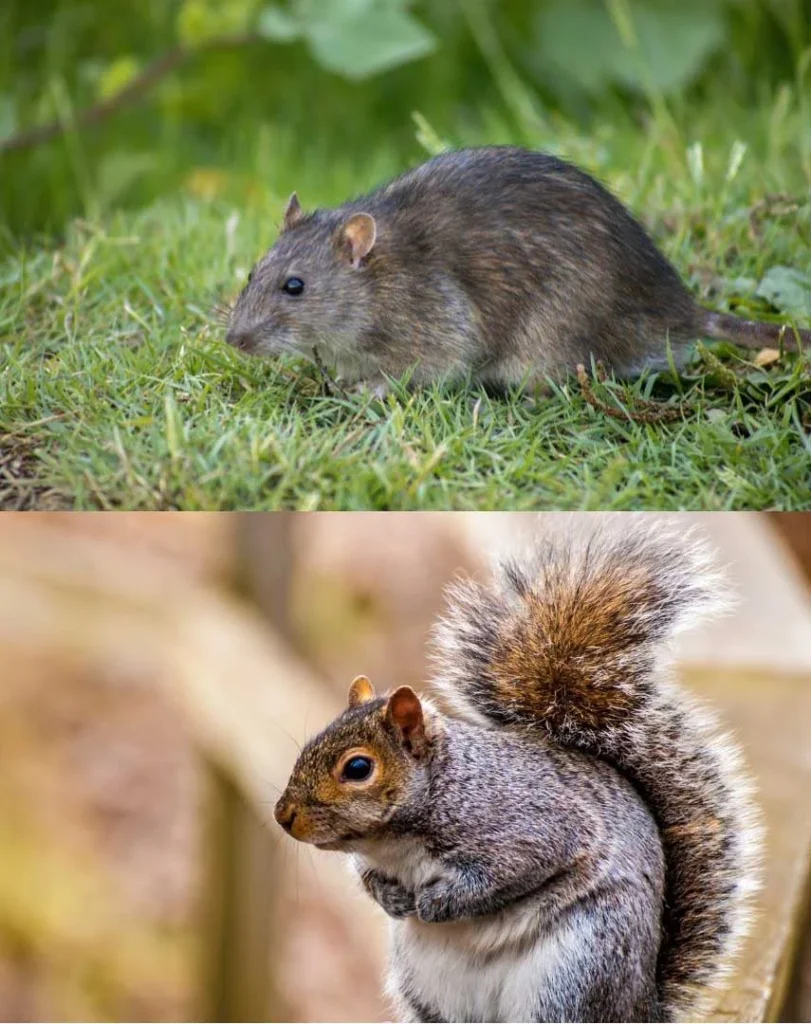
Rats and squirrels are both rodents, but they have some significant differences in behavior. Rats are mostly active at night, meanwhile squirrels are diurnal.
Rats are also more cautious than squirrels and tend to avoid new objects in their environment. Squirrels, on the other hand, are curious and will investigate new objects in their territory. This means that rats may be more difficult to trap than squirrels.
Rats and squirrels have different habitat and nesting preferences. Rats prefer to live in dark, damp places like sewers, basements, and attics. They will build nests out of paper, cloth, and other soft materials. Squirrels, on the other hand, prefer to live in trees and build nests out of twigs and leaves.
Rats and squirrels also have different food preferences and foraging habits. Rats are omnivorous creatures and will consume nearly anything, ranging from meat and vegetables to grains. They are also scavengers and will eat food that they find in garbage cans and dumpsters. Squirrels are herbivores and prefer to eat nuts, seeds, and fruits. They will forage for food on the ground and in trees.
Understanding the differences in behavior, habitat preferences, and food preferences between rats and squirrels is important when developing trapping strategies. For example, because rats are more cautious than squirrels, it may be necessary to utilize bait that is familiar to them to entice them into a trap. Squirrels, on the other hand, may be more easily lured into a trap with a new object or food item.
In addition, because rats prefer to live in enclosed spaces, traps that are placed in dark, enclosed areas may be more effective than traps that are placed in open areas. Squirrels, conversely, may be more readily trapped in areas where they are already searching for food, such as near bird feeders or fruit trees.
Overall, understanding the behavior and needs of rats and squirrels is essential for developing effective trapping strategies. By taking these differences into account, it may be possible to increase the success rate of trapping efforts.
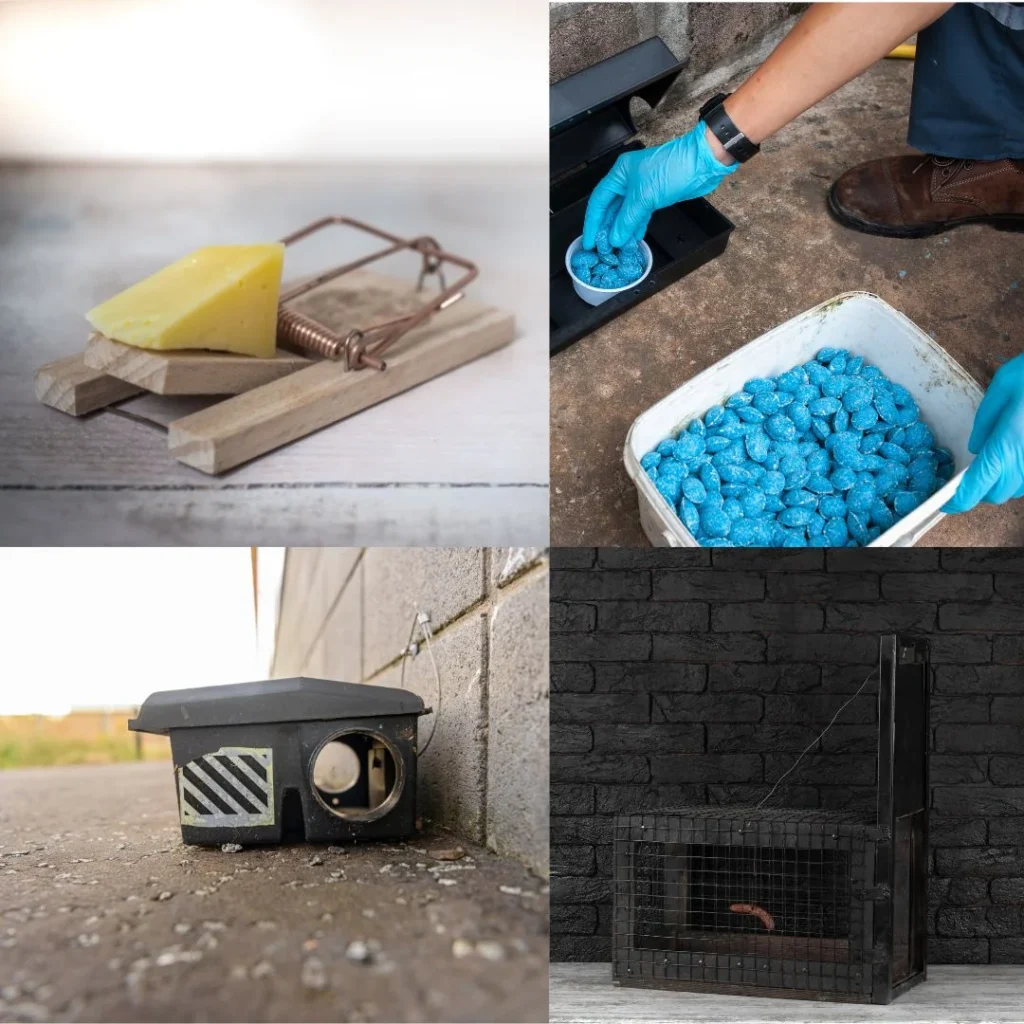
When it comes to capturing squirrels using rat traps, there are various types of traps available on the market. Each type of trap has its own mechanism and unique features. In this section, we will delve into the most prevalent types of rat traps and their suitability for capturing squirrels.
Snap traps are the most widely used type of rat trap. They operate by employing a spring-loaded bar that swiftly shuts when triggered by the bait. These traps are effective in capturing squirrels, but they can also injure or kill them. It is important to use the right size of trap for the squirrel to avoid causing unnecessary harm.
Live-capture traps are designed to capture squirrels alive without causing harm. These traps are typically constructed of wire mesh and feature a door that closes when the squirrel enters the trap. Once captured, the squirrel can be released into the wild. However, it is crucial to release the squirrel far away from your property to deter it from returning.
Electronic rat traps use a high voltage shock to kill the squirrel. These traps are effective and can be set up in areas where other types of traps are not suitable. They are also reusable and can capture multiple squirrels before needing to be reset.
Glue traps are controversial and considered by many to be inhumane. These traps use a sticky adhesive to trap the squirrel, which can cause them to suffer and die slowly. It is best to avoid using glue traps for capturing squirrels.
Each type of rat trap has its own advantages and disadvantages when it comes to capturing squirrels. Snap traps are effective but can be harmful, live-capture traps are humane but require release, electronic rat traps are reusable but use high voltage shocks, and glue traps are controversial and inhumane. Selecting the appropriate type of trap is crucial for your situation and handle captured squirrels with care.
Squirrels are small, agile rodents that belong to the family Sciuridae. They are found all over the world, and there are over 200 different species of squirrels. In this section, we will discuss the biology and behavior of squirrels that are relevant to trapping efforts.
The most common squirrel species in North America are the gray squirrel, red squirrel, and fox squirrel. Gray squirrels are the largest of the three, with an average length of 18 inches and a weight of up to 1.5 pounds. Red squirrels are smaller, with an average length of 8 inches and a weight of up to 0.5 pounds. Fox squirrels are the largest of the three, having an average length of 20 inches and a weight of up to 3 pounds.
Squirrels build nests, or dreys, out of twigs, leaves, and other materials. They typically build their nests in trees, but they can also build them in attics, chimneys, and other structures. When trapping squirrels, it is important to locate their nests and set traps near them. This increases the chances of catching the squirrels.
Squirrels are omnivores, indicating they consume both plant and animal matter. Their diet encompasses nuts, seeds, fruits, insects, and small animals. When selecting bait for squirrel traps, it is important to use food that is attractive to squirrels. Some effective baits include peanut butter, sunflower seeds, and apple slices.
Squirrels have two breeding seasons per year, one in the spring and one in the fall. During these times, squirrels are more active and are more likely to be caught in traps. It is also important to note that trapping squirrels during their breeding season may result in orphaned young, which can be a problem.
In conclusion, understanding the biology and behavior of squirrels is important when attempting to trap them. By using the appropriate traps and bait, and setting them in the right locations, it is possible to catch squirrels effectively and humanely. Nonetheless, it is crucial to be mindful of the potential impact of trapping on squirrel populations and to take necessary precautions to minimize harm.
Rat traps are designed to capture and kill small rodents like rats and mice. Squirrels, on the other hand, are larger and more agile than rats, making it difficult for rat traps to effectively capture them. Rat traps are not designed to hold larger animals, and squirrels may be able to escape or even break the trap. Additionally, squirrels are less likely to be attracted to the bait used in rat traps, as they prefer nuts, seeds, and fruits.
There are anecdotal reports of people successfully capturing squirrels with rat traps, but these are not backed up by scientific studies. In fact, studies have shown that rat traps are not effective at capturing squirrels. One study found that only 4% of squirrels were caught in rat traps, compared to 80% caught in live traps designed specifically for squirrels.
Using rat traps to capture squirrels can lead to inhumane outcomes, as the traps are not designed to hold larger animals and can cause injury or death. Squirrels may also suffer for an extended period of time if they are trapped but not killed outright. Additionally, using rat traps to capture squirrels may be illegal in some regions.
It is essential to verify local laws and regulations before attempting to trap squirrels. In some regions, it is illegal to trap squirrels without a permit or license. Even in regions where trapping is allowed, there may be restrictions on the types of traps that can be used and how they are set. Adhering to all regulations is important to evade legal consequences and ensure humane treatment of animals.
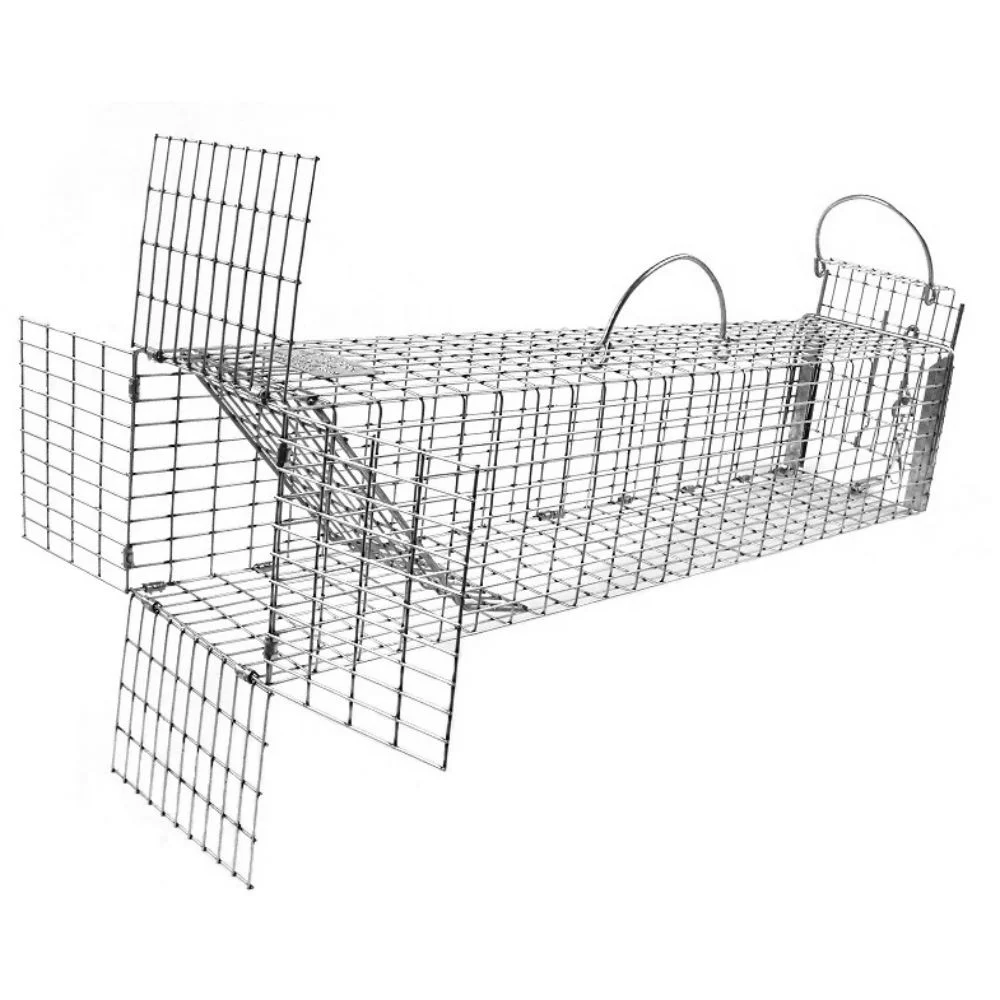
While rat traps can be used to catch squirrels, custom-designed squirrel traps are more effective. These traps are specifically designed to catch squirrels and are larger than rat traps. Squirrel traps also have a mechanism that prevents the squirrel from escaping once it is caught.
Exclusion and proofing techniques can be employed to deter squirrels from entering a property initially. This involves sealing all possible entry points, such as plugging holes in the roof or walls with materials that squirrels cannot chew through.
Attractants and deterrents can also be used to control squirrel populations. Squirrels are attracted to certain foods, such as nuts and seeds, so using these as bait in traps can increase the chances of catching them. Deterrents, such as scents or sounds that squirrels find unpleasant, can also be used to keep them away from an area.
If the squirrel infestation is severe or the property owner is unable to control the problem on their own, professional critter control services may be necessary. These services possess the experience and equipment necessary to safely and efficiently remove squirrels from a property. It is crucial to select a reputable company with appropriate licensing and insurance.
When it comes to trapping squirrels, there are a few best practices to keep in mind to ensure successful capture and humane treatment of the animal. Here are some tips to take into account:
Selecting the appropriate size and type of trap for squirrels is crucial. A trap that is too small may not be effective, while one that is too large could be dangerous for the animal. A live trap that allows for relocation is a humane option, but a lethal trap may be necessary in some situations.
Baiting and positioning traps correctly is crucial for successful capture. Squirrels are enticed by nuts, seeds, and fruits, making them excellent bait options. It is also essential to position the trap in an area frequented by squirrels, such as near trees or bushes. Ensure to adhere to any local laws or regulations concerning trapping and baiting.
Once traps are set, it is important to monitor them regularly to ensure that any captured squirrels are removed promptly. Traps should also be checked for damage or wear and tear, and cleaned after each use to prevent the spread of disease.
To prevent future squirrel problems, it is crucial to eliminate any attractants that may be luring them to the area. This may include securing garbage cans, removing fallen fruit or nuts, and sealing any potential entry points into buildings or homes.
By following these best practices, individuals can effectively and humanely trap squirrels and prevent future infestations.
In this article, the effectiveness of rat traps for catching squirrels was explored. The article discussed the differences between rat and squirrel behavior, as well as the types of traps that are commonly used for each. The article also covered the potential risks of using rat traps for squirrels, such as injury or death to the squirrel, and the legal implications of trapping wildlife.
Overall, while rat traps may be effective for catching squirrels in some cases, maybe we will need to consider other options. There are traps specifically designed for squirrels that are more humane and less risky. When trying to remove the animal from your property, it's crucial to prioritize its welfare.
If you are grappling with a rodent or squirrel issue on your property, it is imperative to enlist the assistance of a professional. Critter Stop is a reputable wildlife removal company that specializes in humane trapping and relocation of animals. Contact us at (214) 234-2616 today to schedule an appointment and safely remove any unwanted wildlife from your property.
Yes, a rat trap can kill a squirrel if it is triggered correctly. However, it is important to note that rat traps are not specifically designed for squirrels, and using them for this purpose can be dangerous for both the squirrel and the person setting the trap. It is advisable to utilize traps specifically designed for squirrels to ensure humane and effective trapping.
The size of the trap necessary for trapping squirrels depends on the size of the squirrel. It is recommended to use traps that are at least 18 inches long and 5 inches wide for adult squirrels. Smaller traps can be used for juvenile squirrels. It is crucial to be sure that the trap is the right size because if is too small, can cause injury to the squirrel.
Rat traps can work for squirrels, but they are not the most effective or humane option. Squirrels are larger than rats so they require a bigger trap or one specifically designed for squirrels. Additionally, rat traps are often designed to kill the animal, which may not be the desired outcome for those seeking to trap squirrels humanely.
Yes, squirrel gets caught in rat trap is a possibility if the trap is triggered correctly. However, as mentioned previously, it is not recommended to use rat traps for squirrels as they are not designed for this purpose and can be dangerous for both the squirrel and the person setting the trap.
Visit our Critter Library and learn more about our furry friends